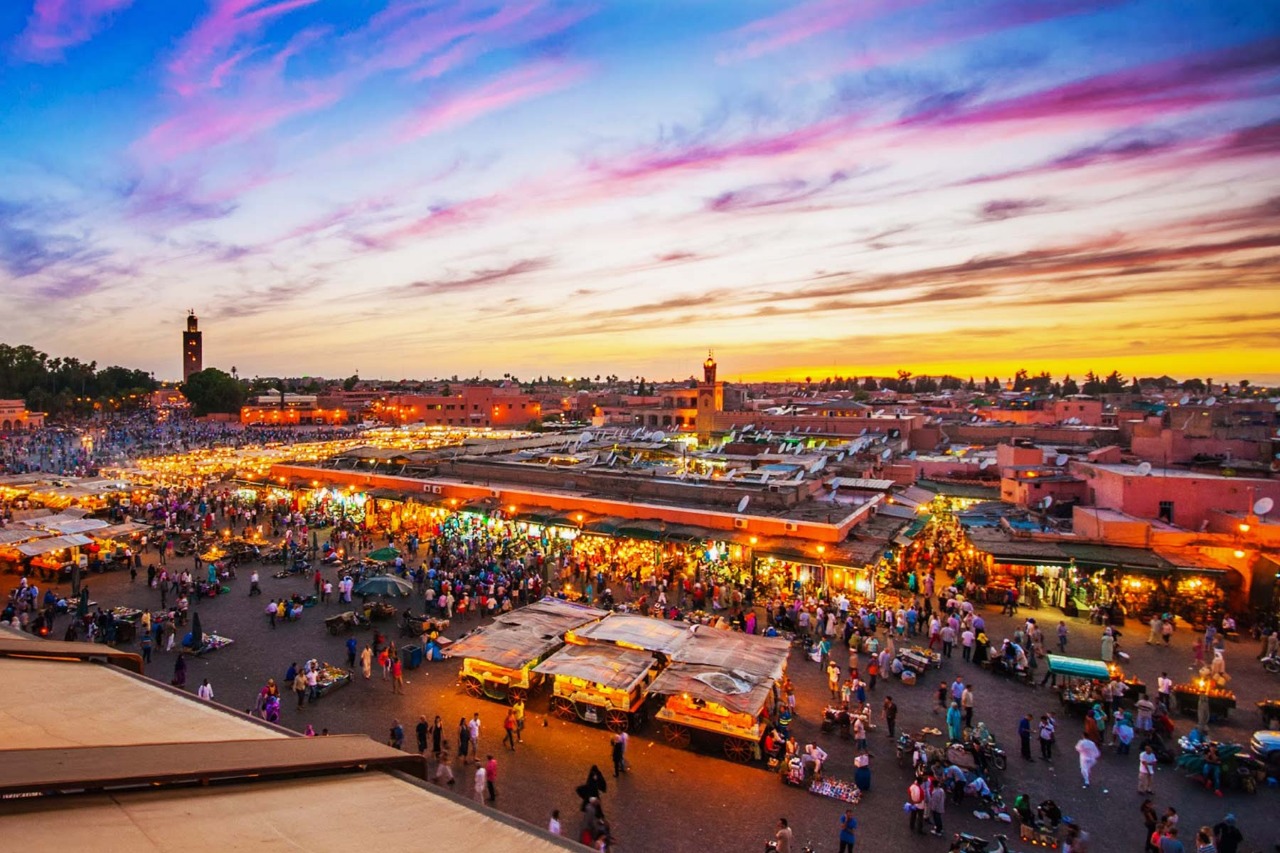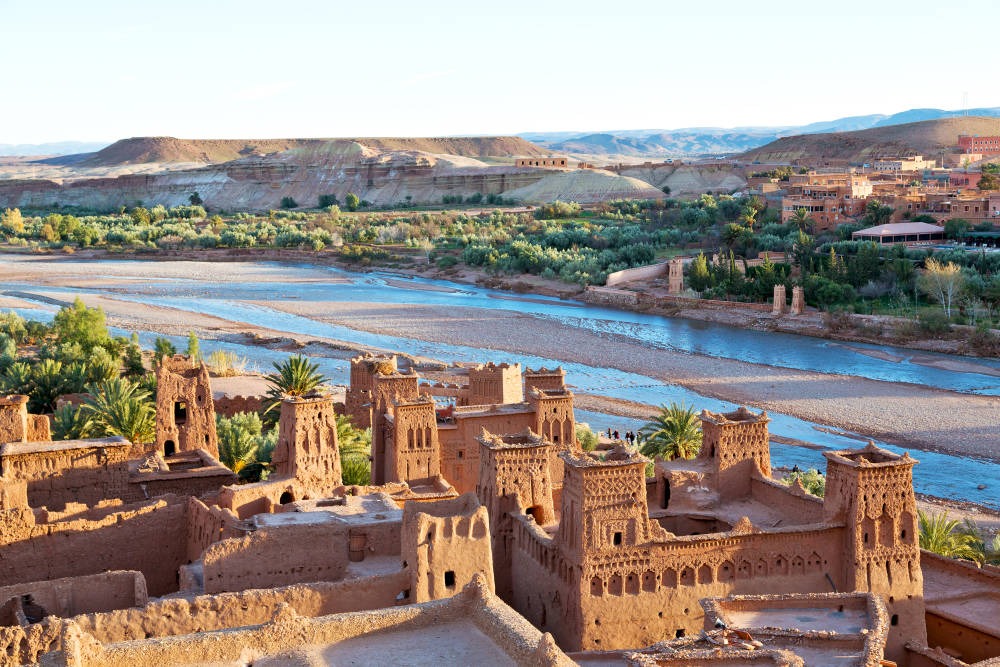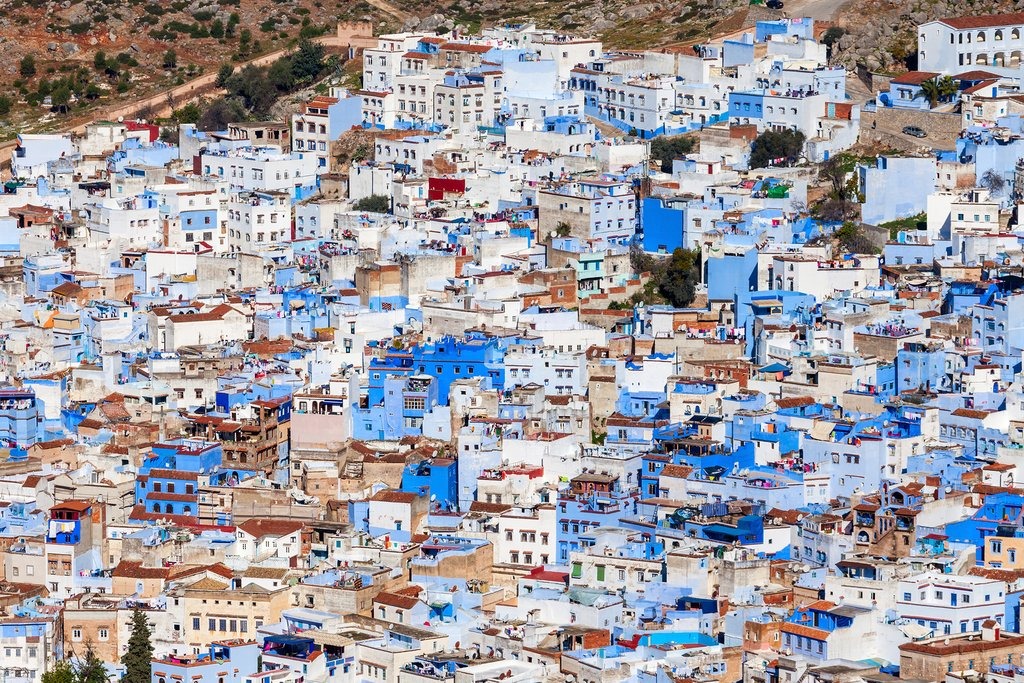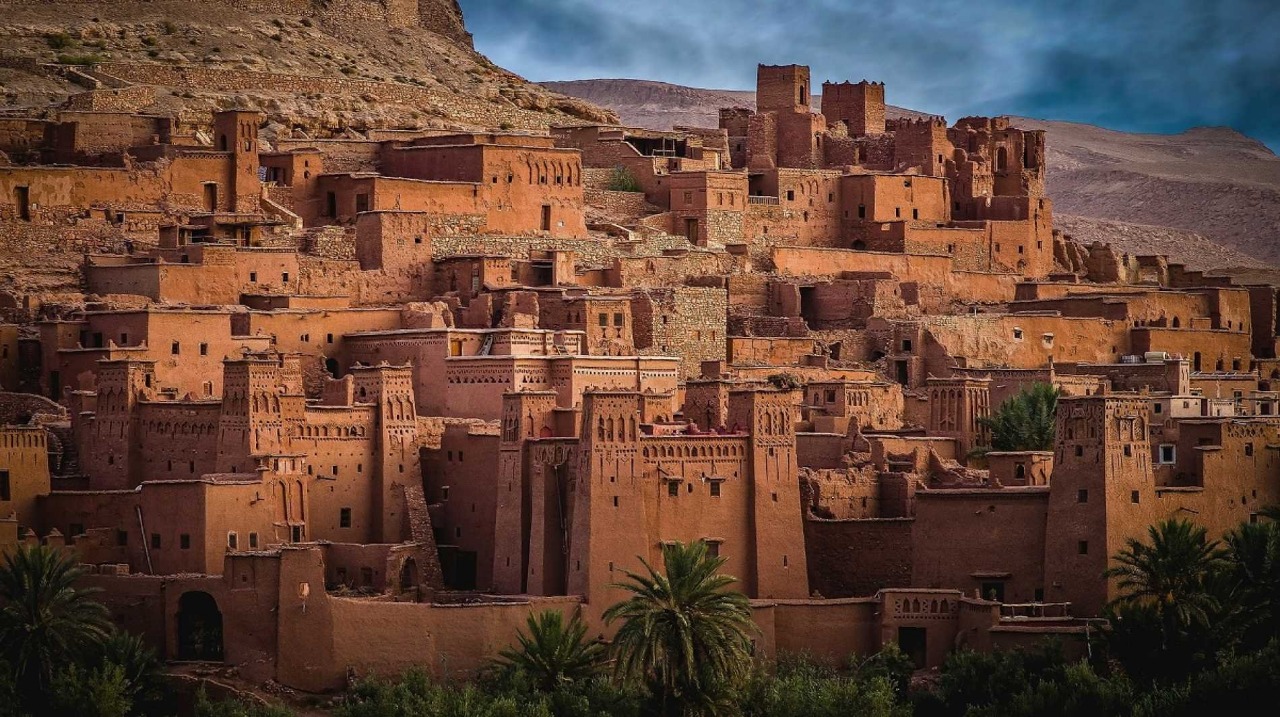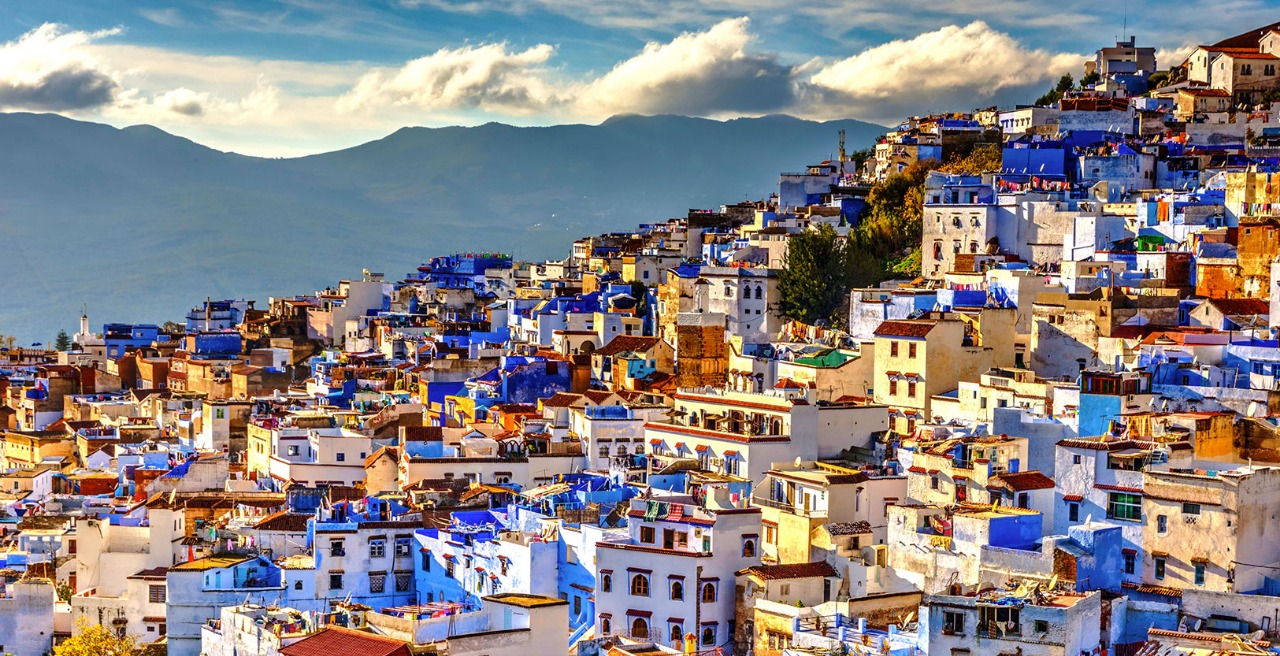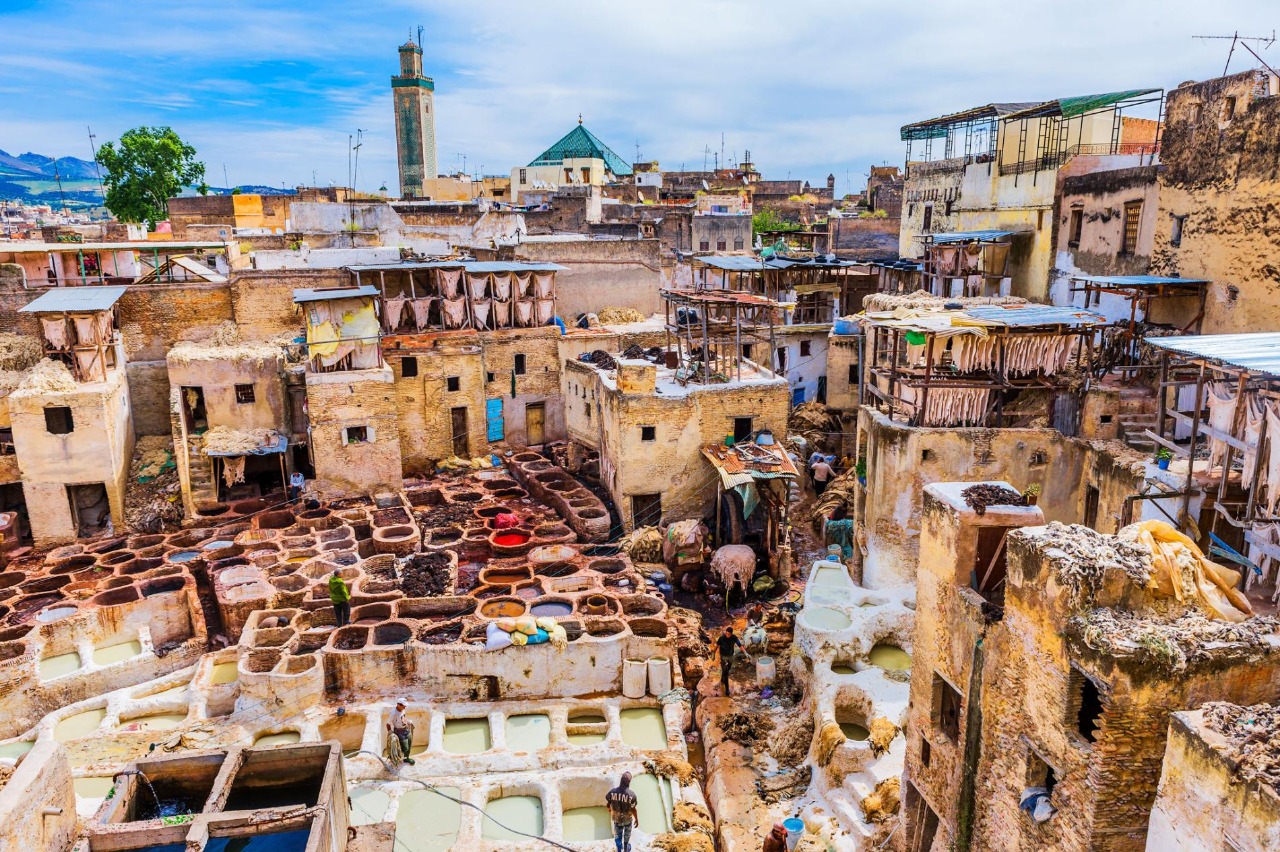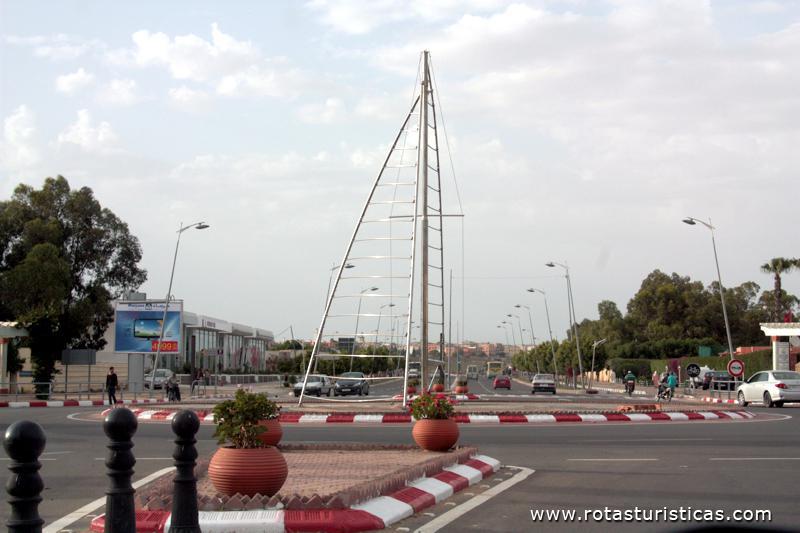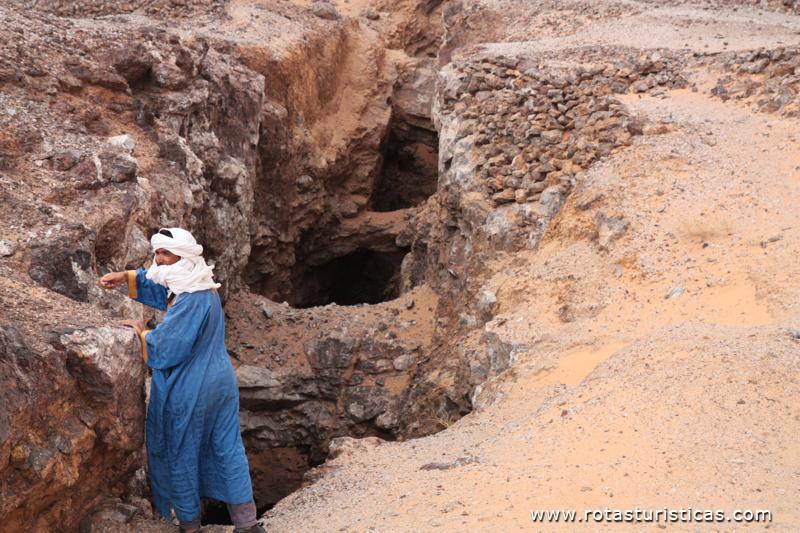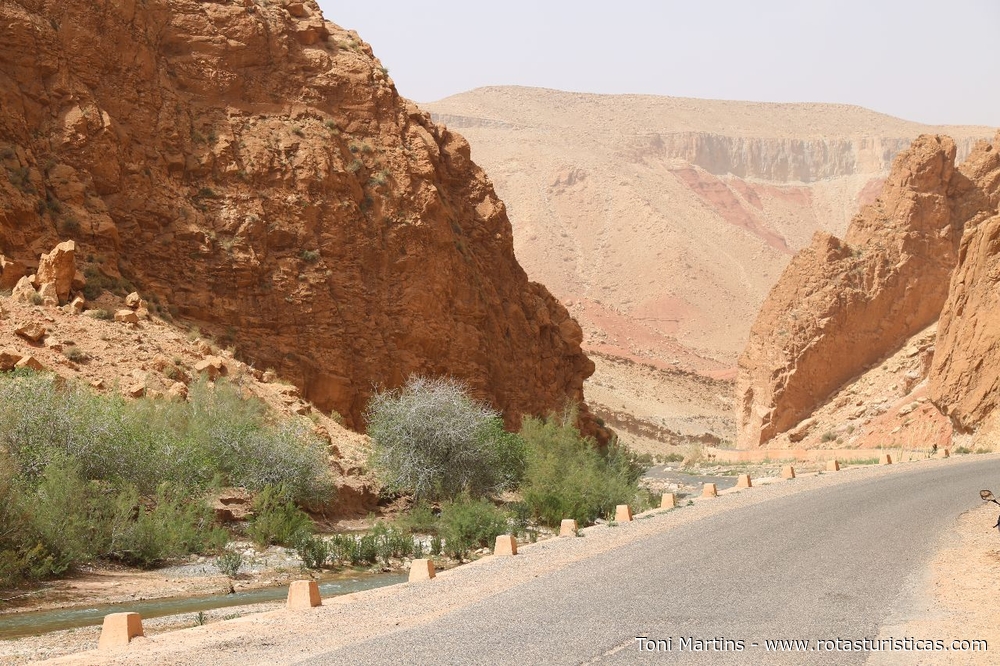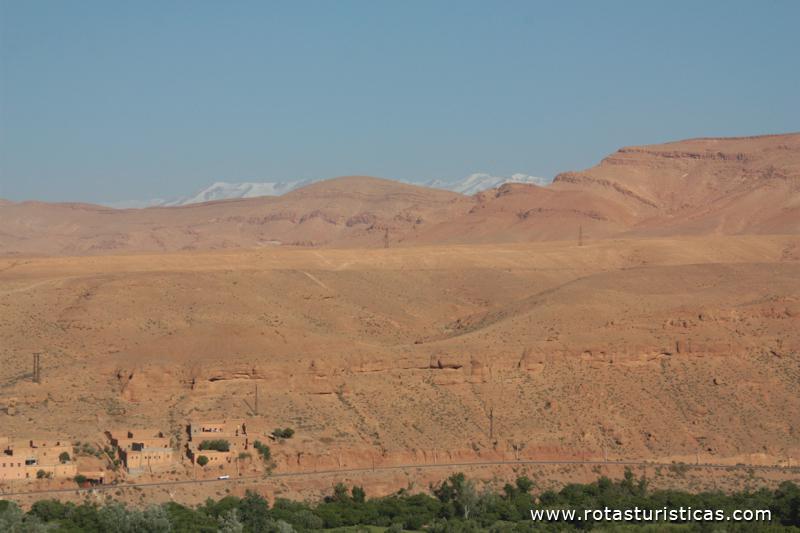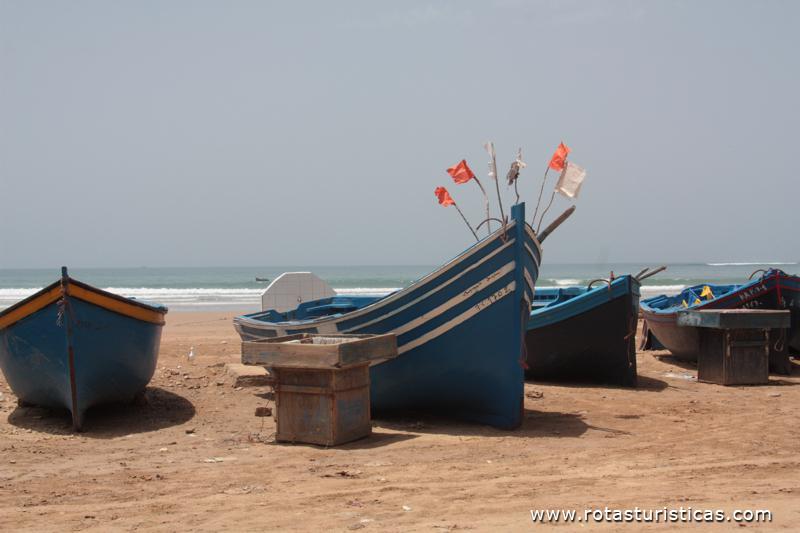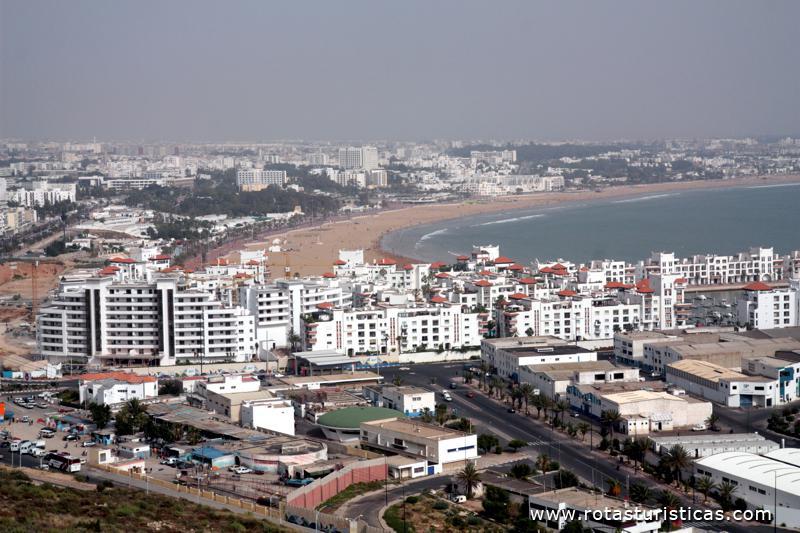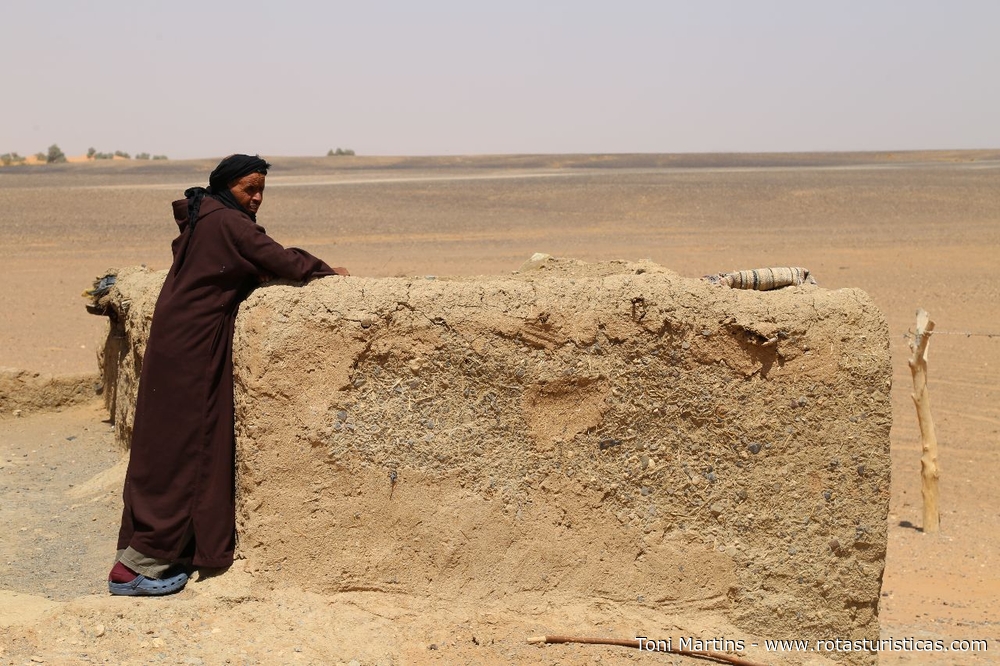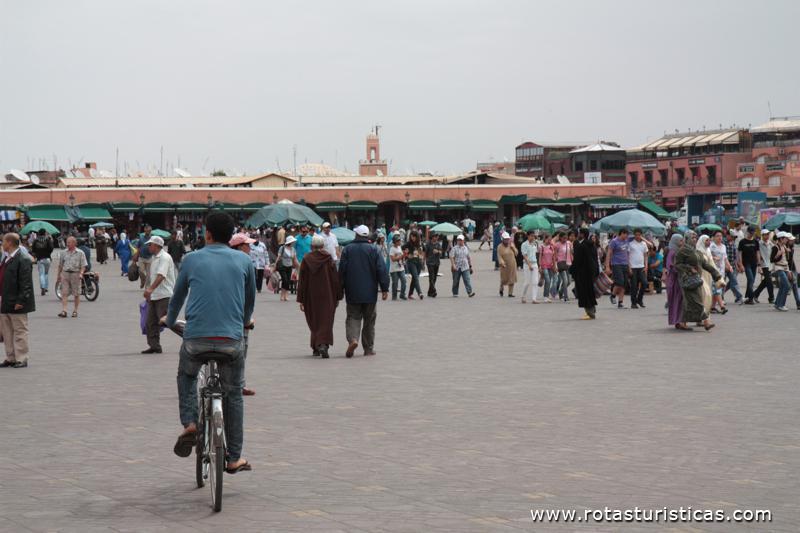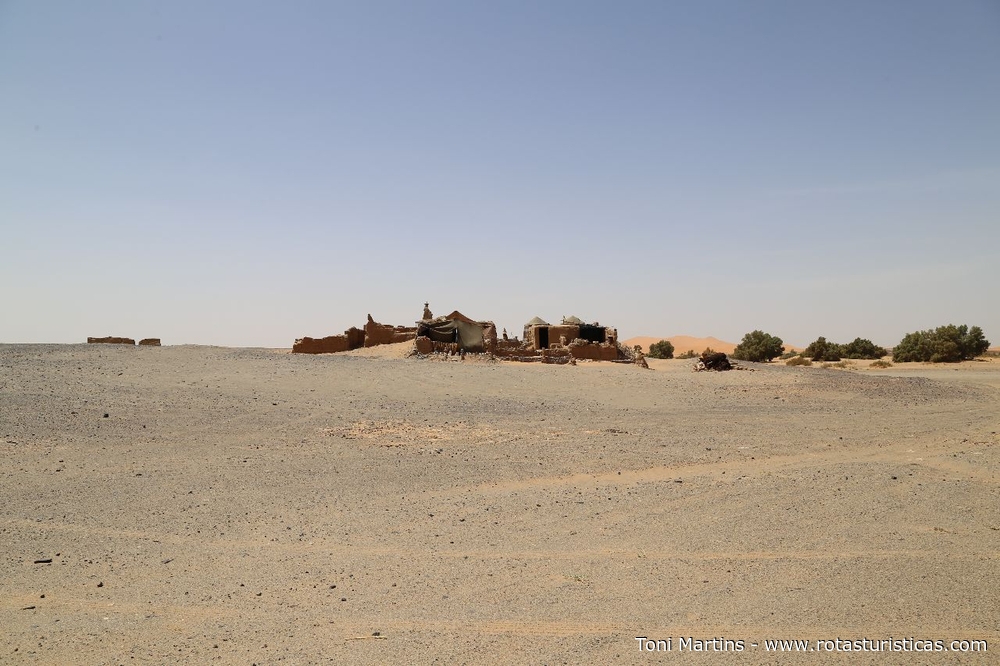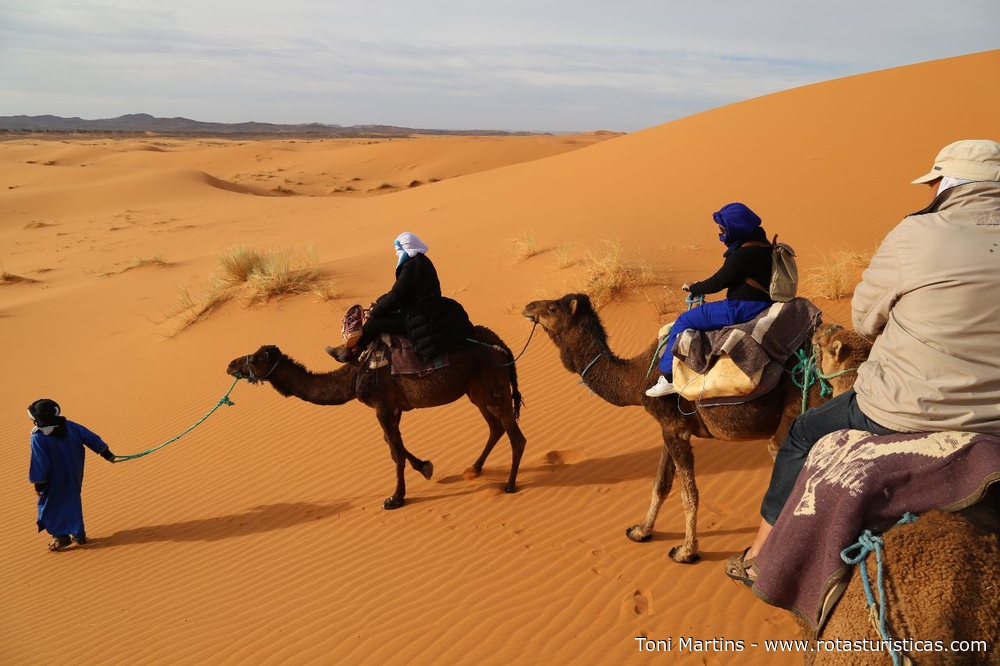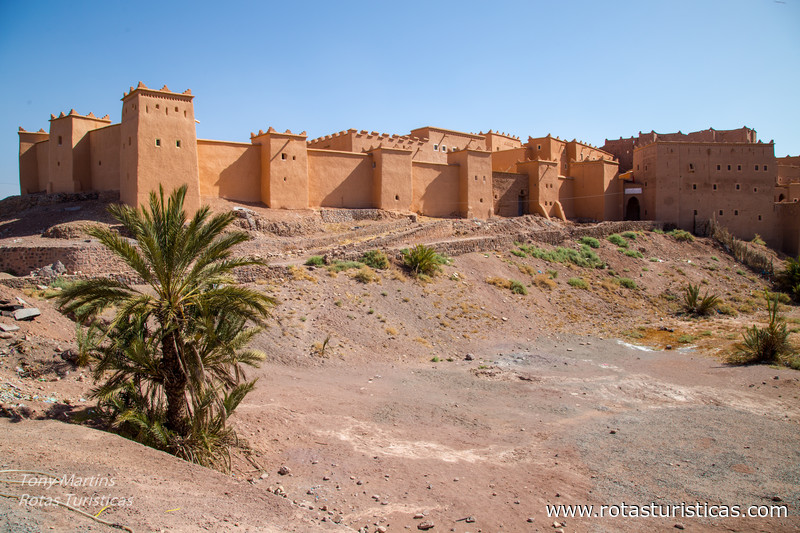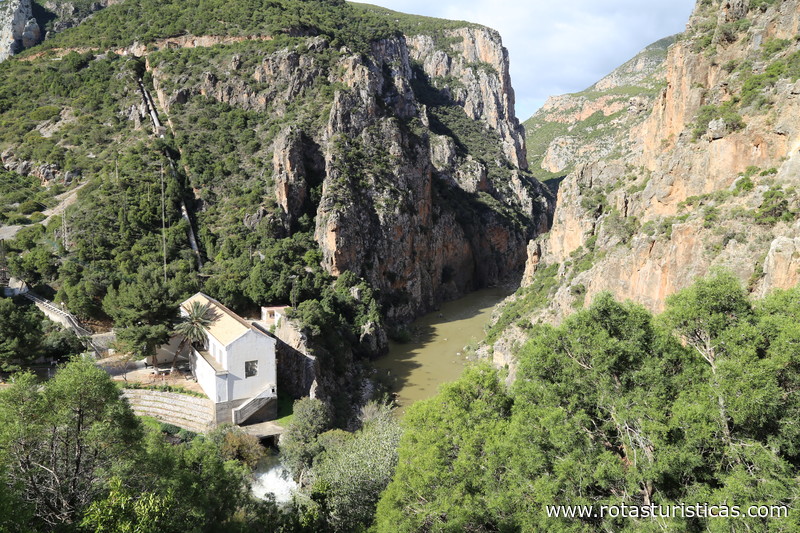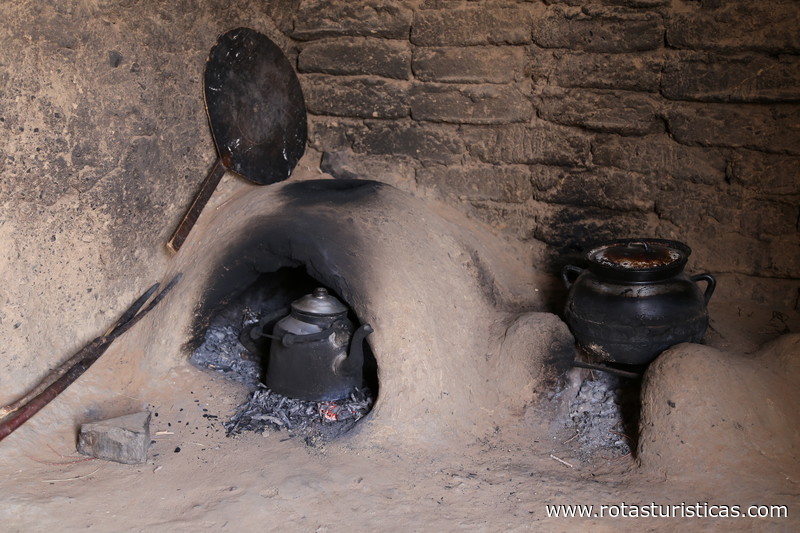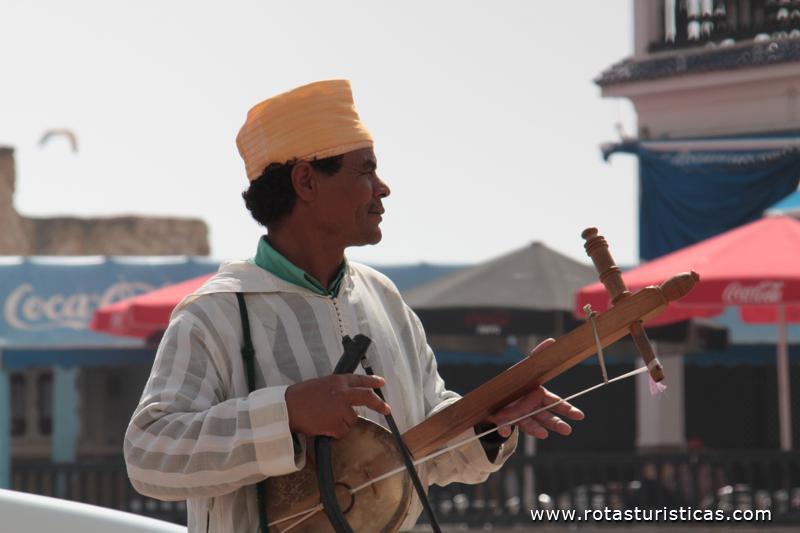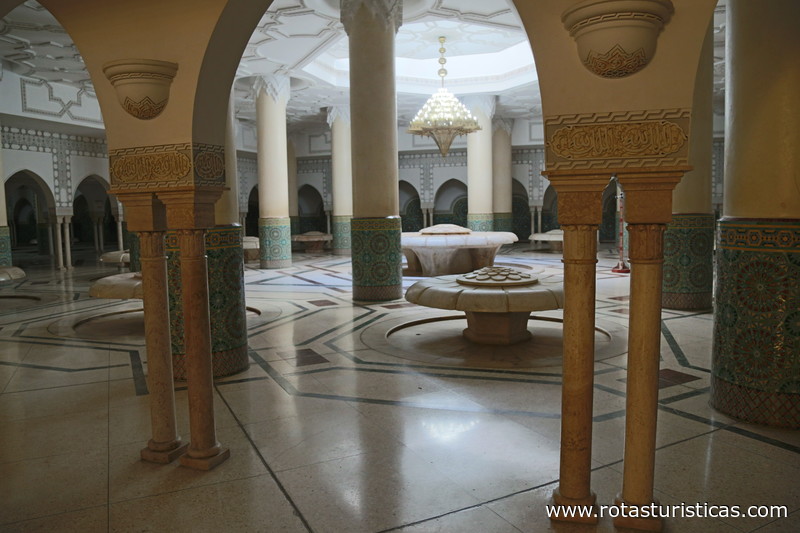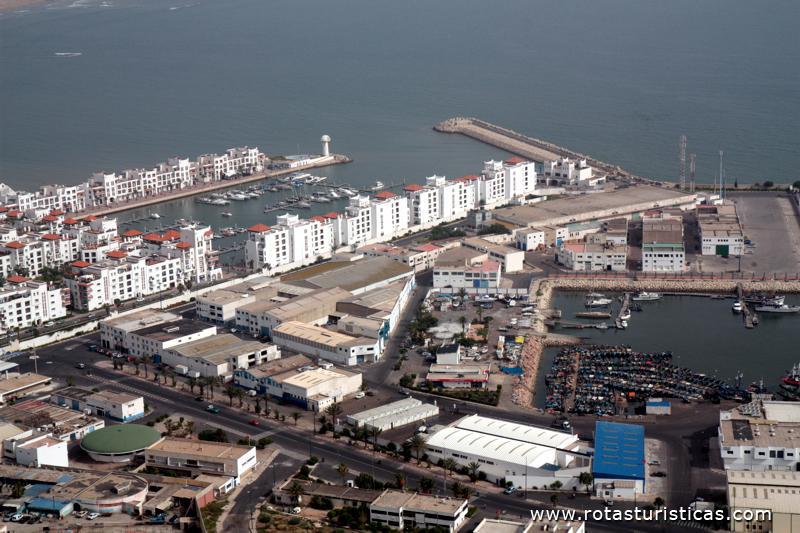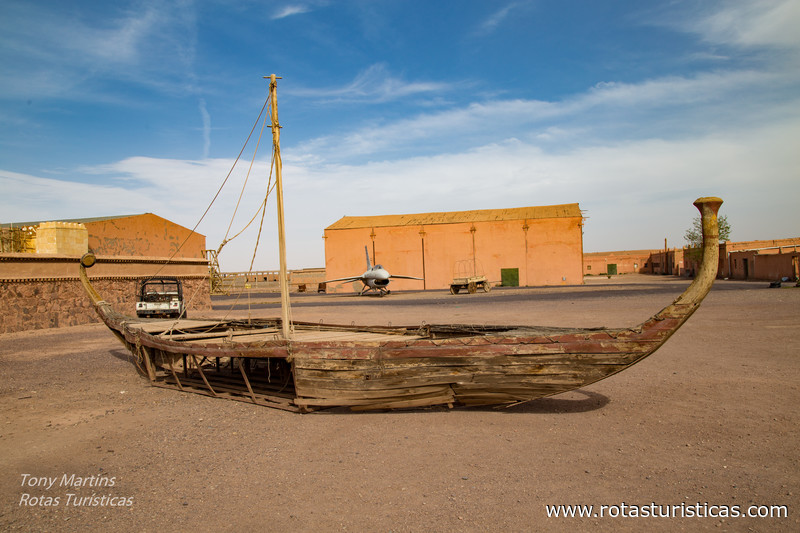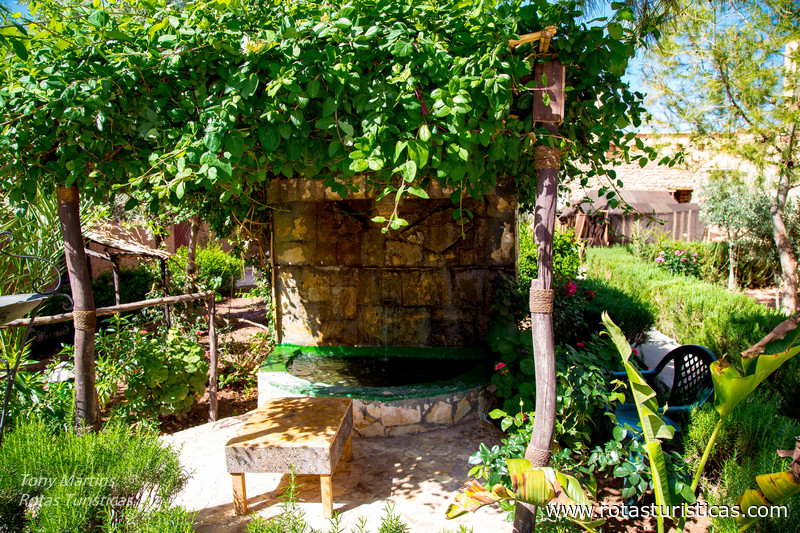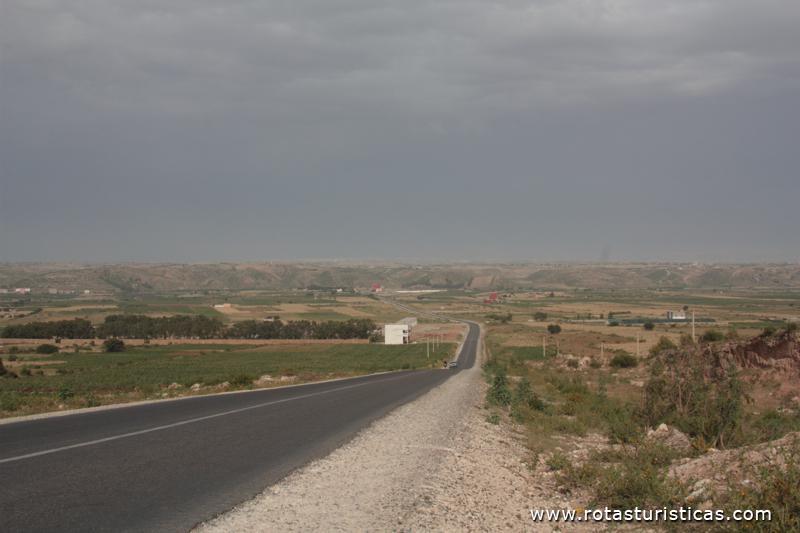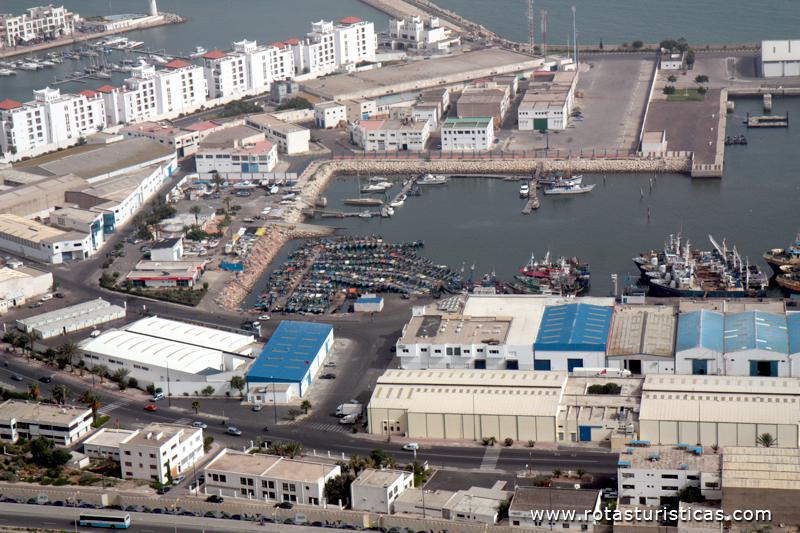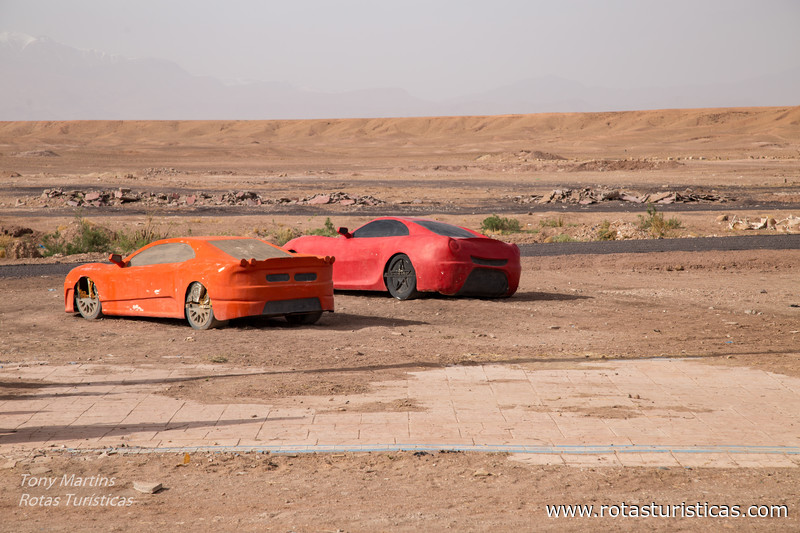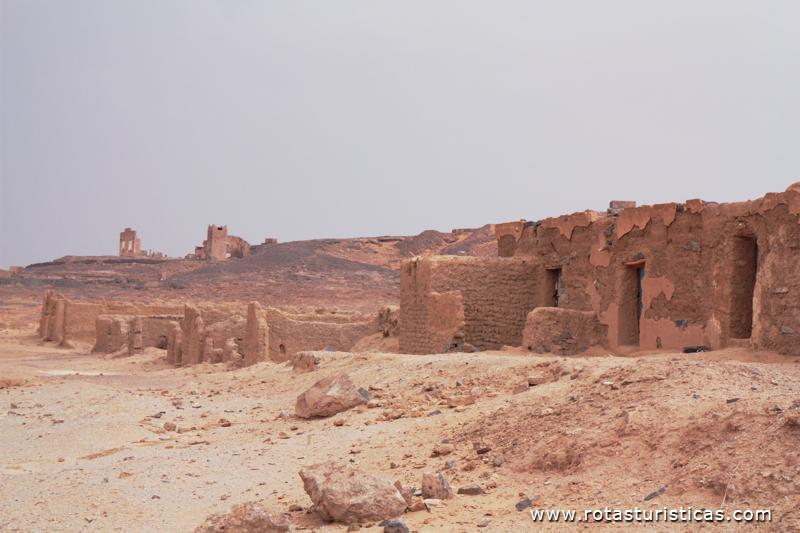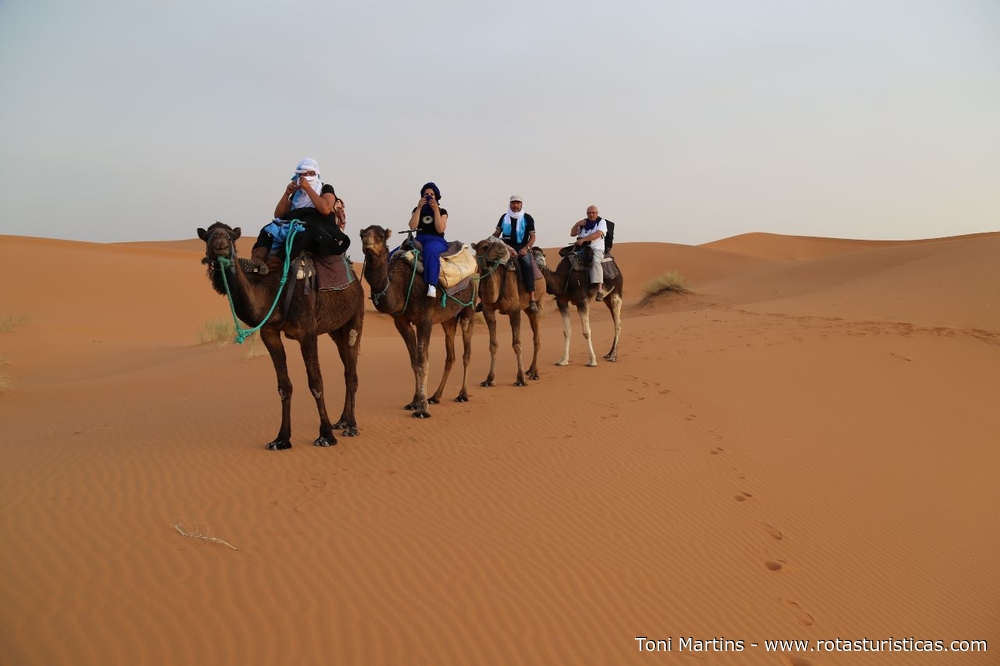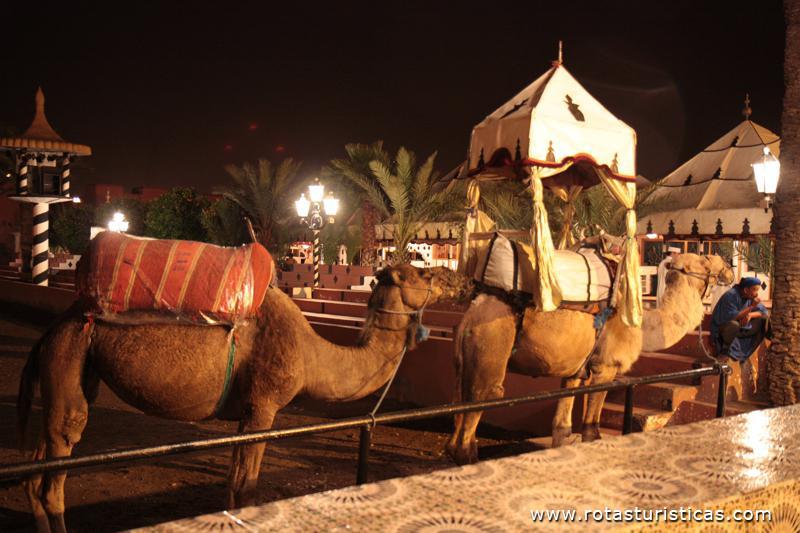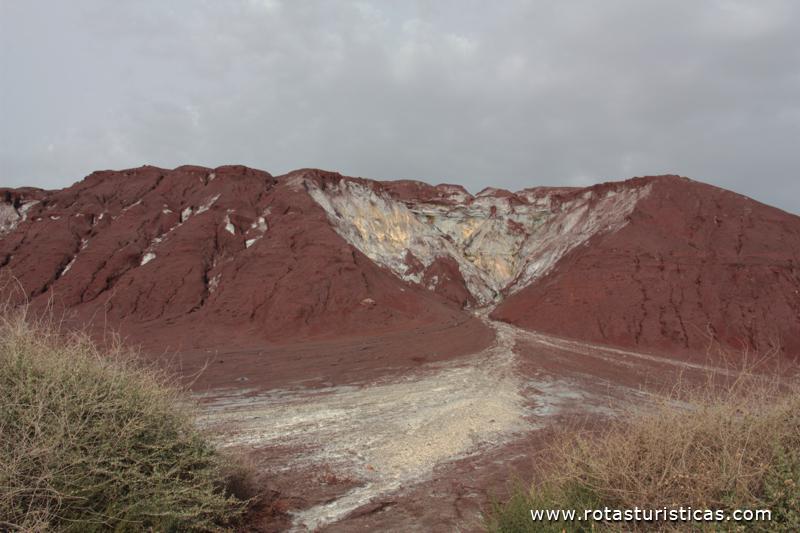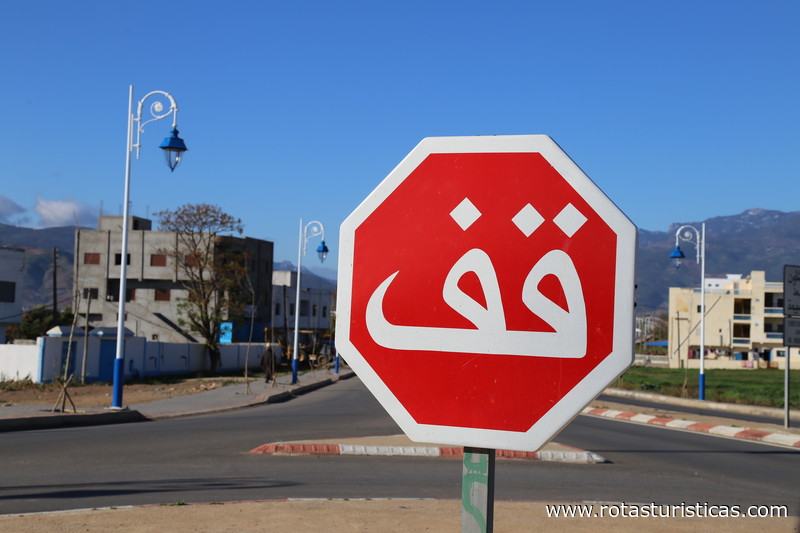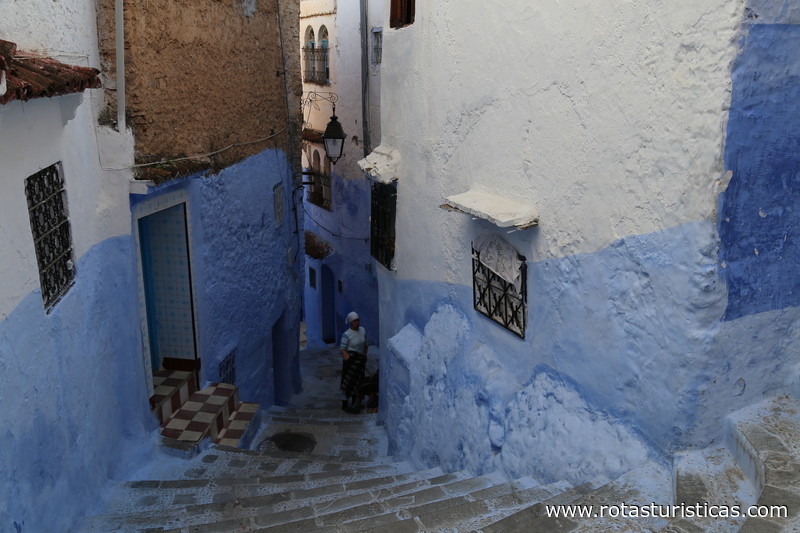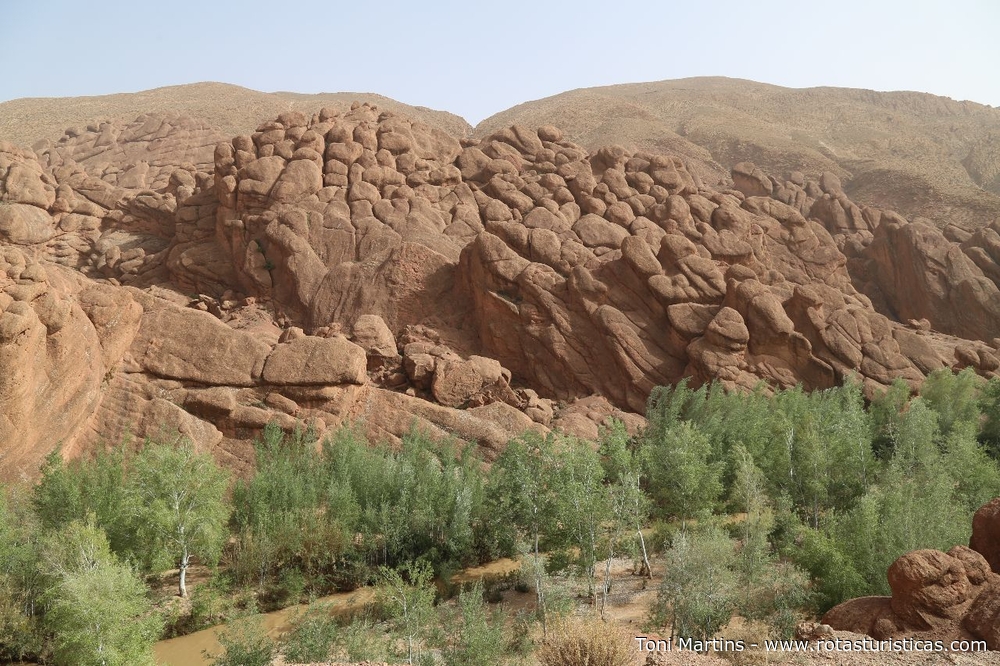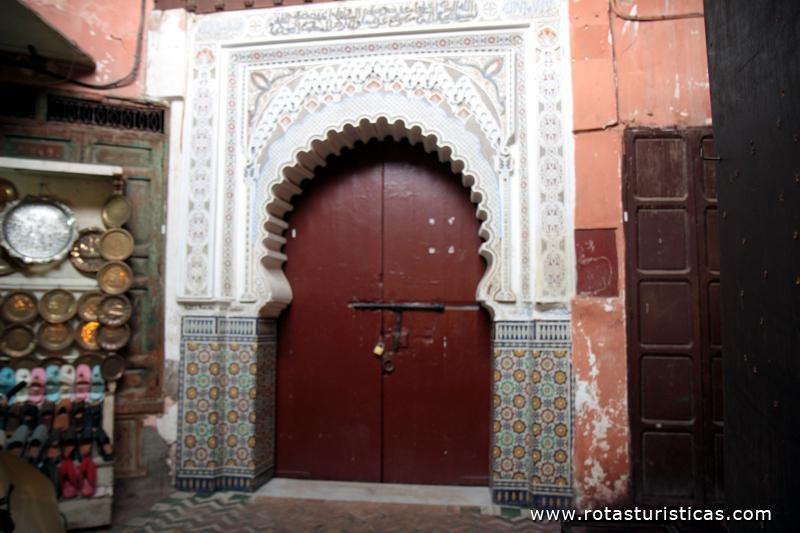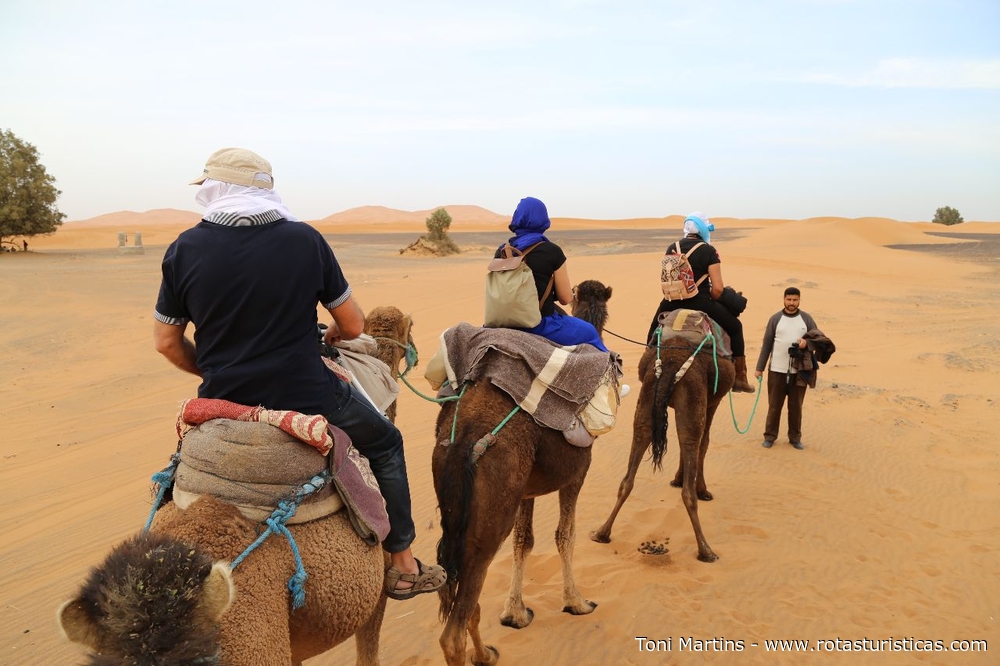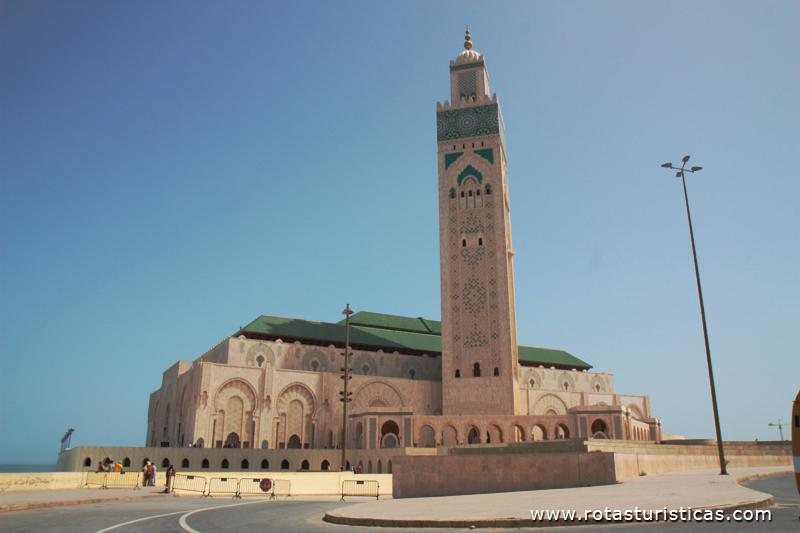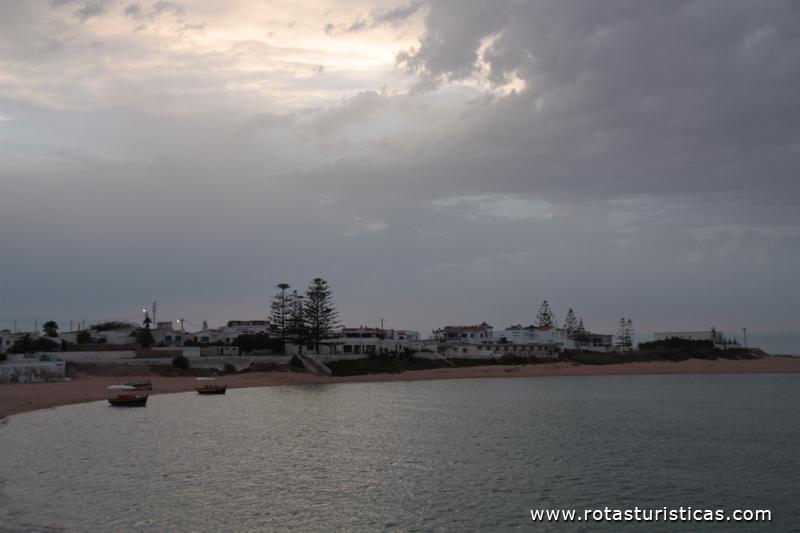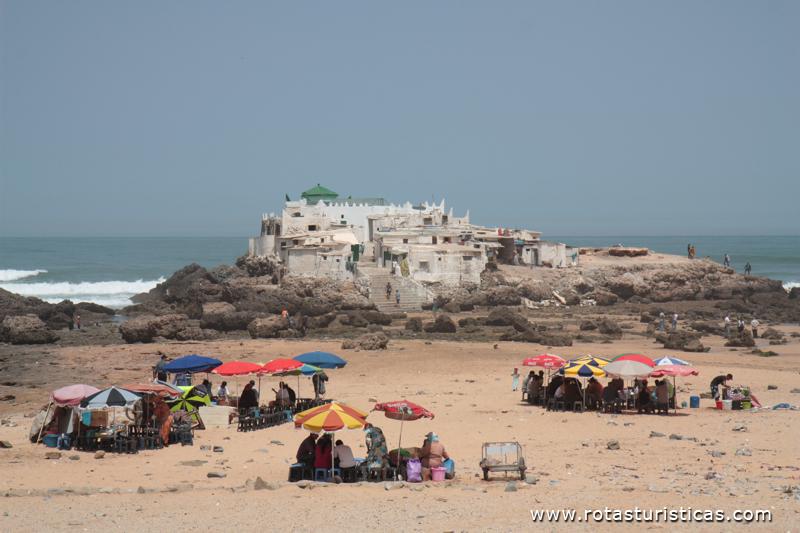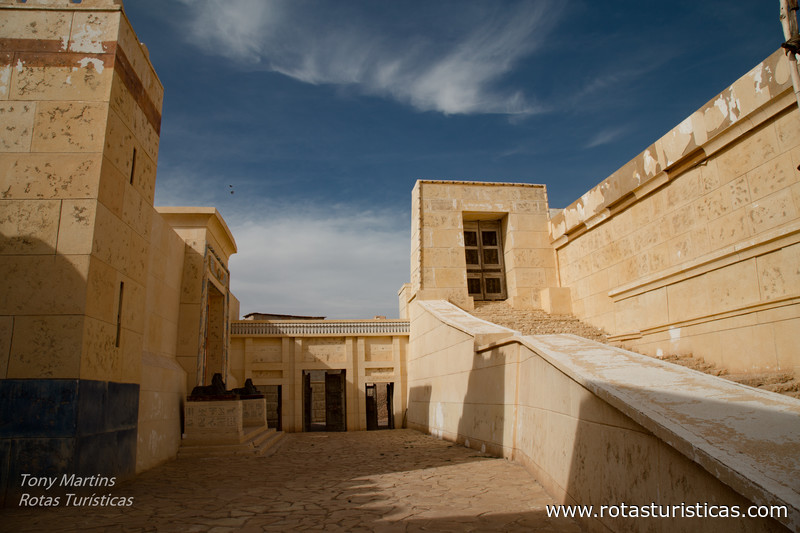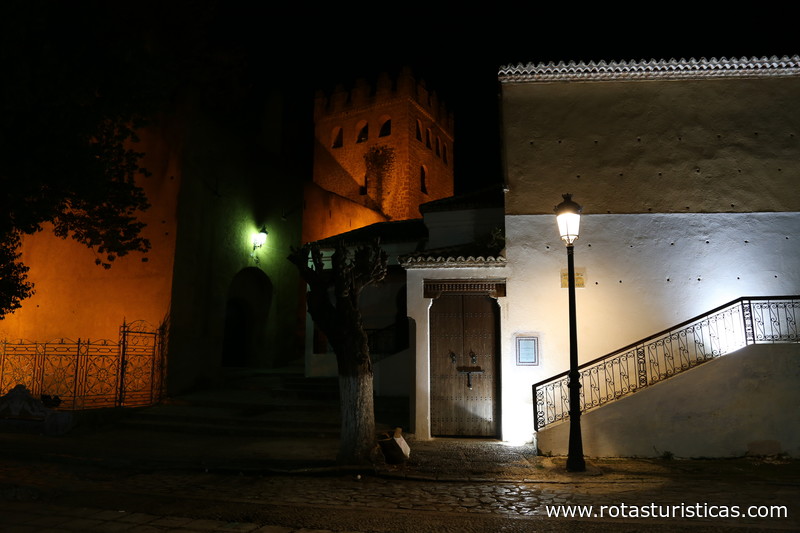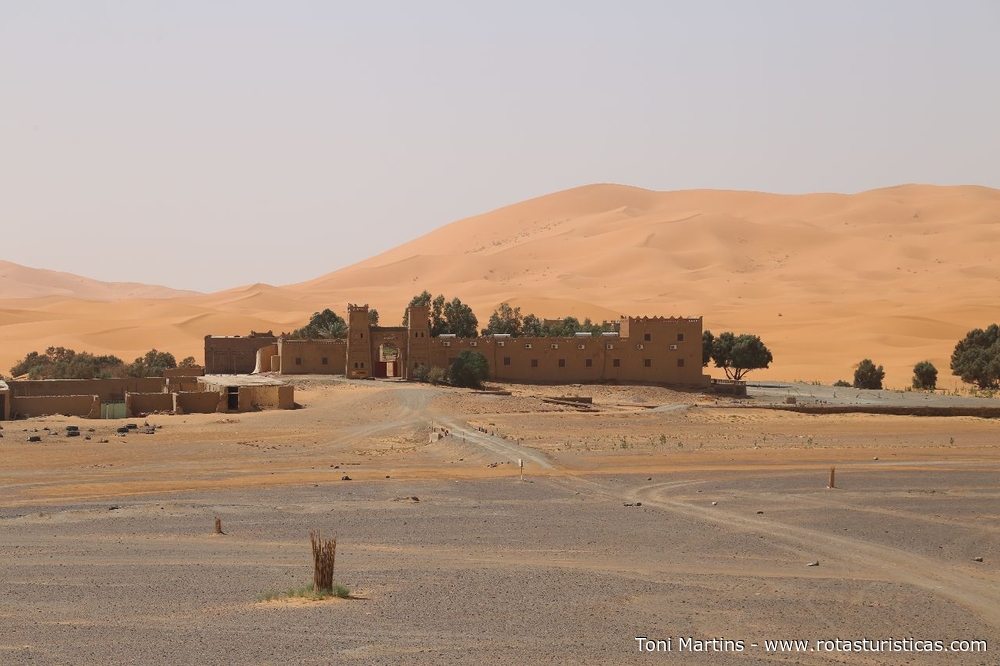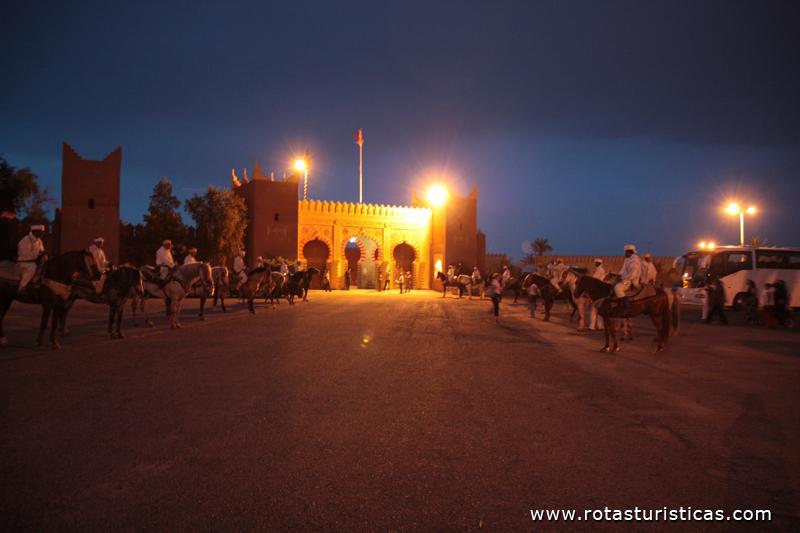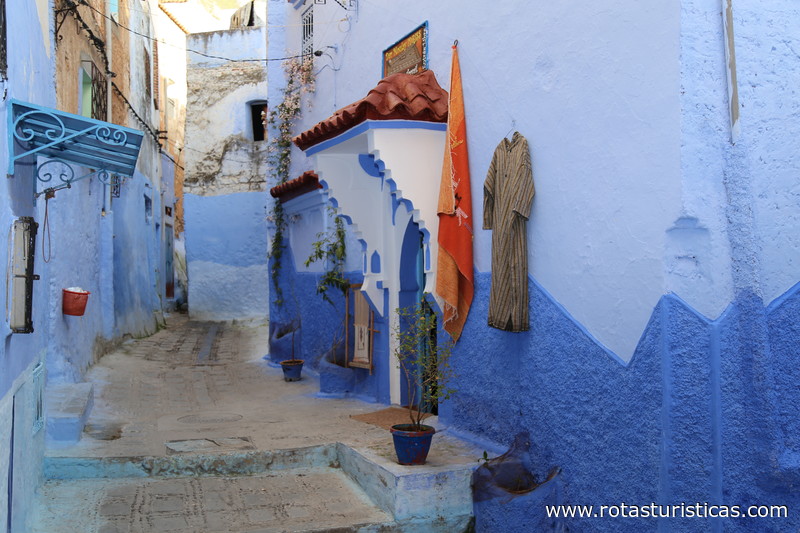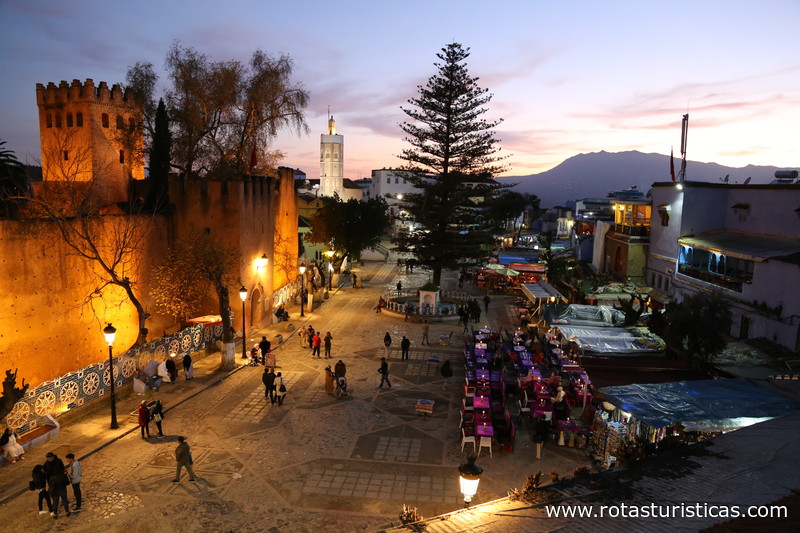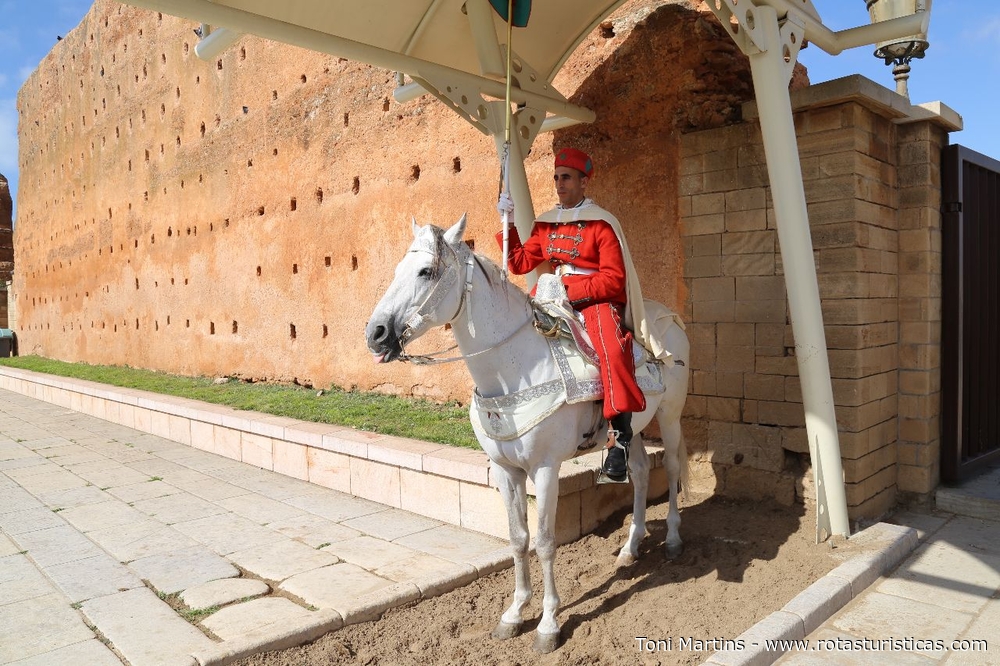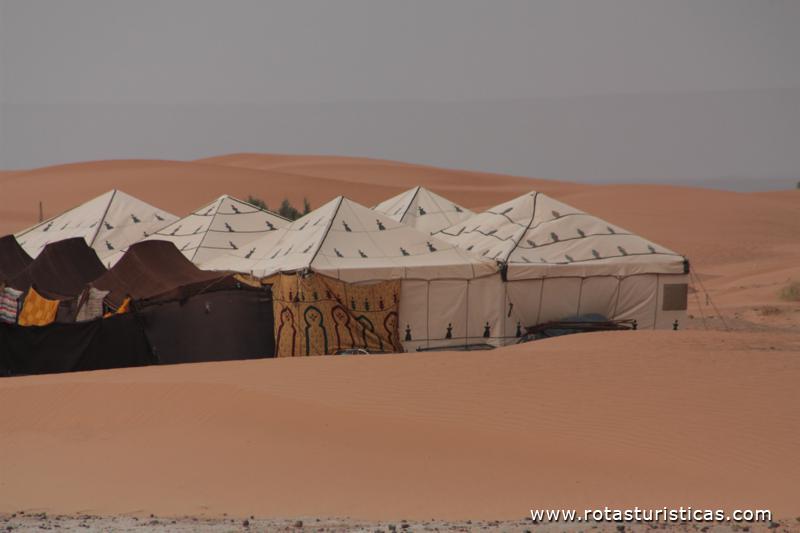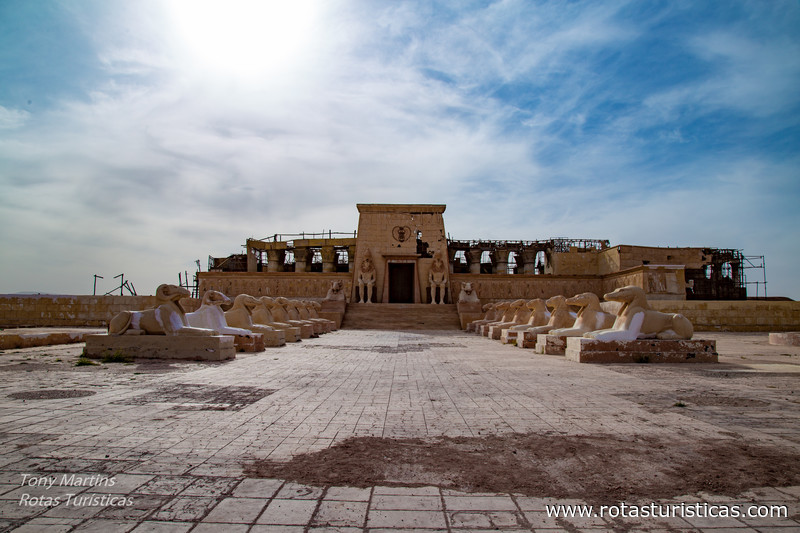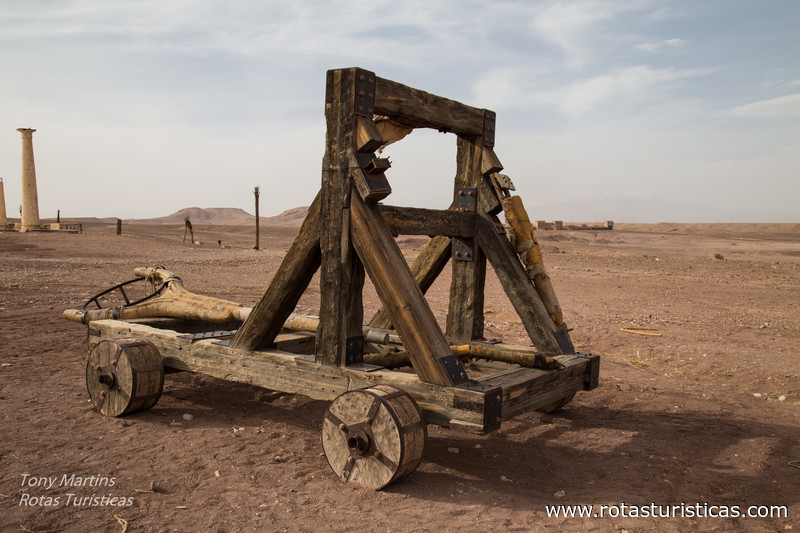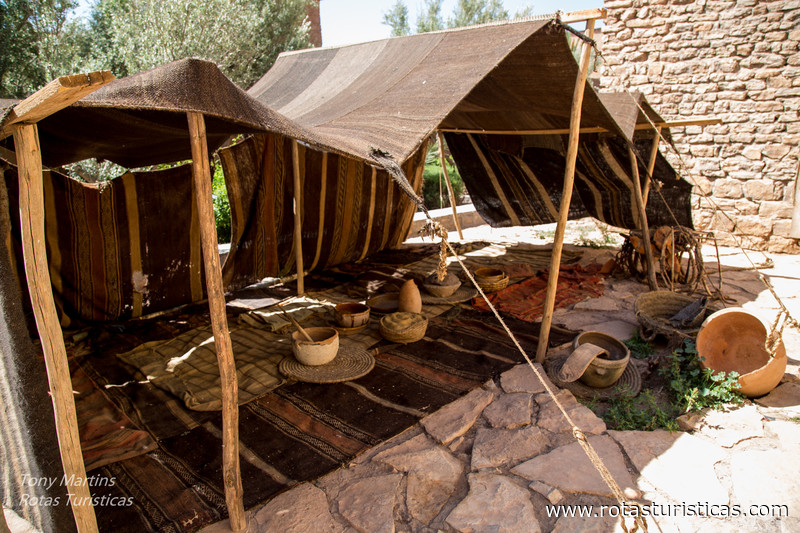Pictures of: Morocco
Location map
Airports
Hotels and other Accommodation
Golf Courses
What to visit
Where to Eat
Where to have fun
Consulates & Embassies
World Nomads
The Travel Insurance with the largest coverage
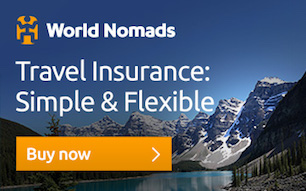
The Travel Insurance with the largest coverage

Morocco
The Kingdom of Morocco is located in the Maghreb, in the extreme north-west of Africa, being bordered on the north by the Strait of Gibraltar (where it borders Spain and Gibraltar), Ceuta, the Mediterranean and Melilla, east and south by Algeria, to the south by Mauritania through the Western Sahara (territory mostly controlled by itself) is bathed by the Atlantic Ocean and the Mediterranean Sea to the north. The capital of the country is the city of Rabat. Morocco withdrew from the African Union, when the Sahrawi Arab Democratic Republic was accepted as a member.
Official language
Arabic
Currency
Dirham
Documentation
For the citizens of the European Union, no entry visa is required.
For visitors from other countries, they must have the following documents and conditions:
1. Valid national passport or internationally recognized valid travel document
2. Entry visa.
3. Valid return travel ticket and sufficient funds during your stay.
4. Not to be considered a Non-Grateful Person
5. Arrival / Departure Card Fill
Application for the document instead of passport can be made at any representative office of Morocco abroad.
Holders of travel documents such as a Certificate of Identity, Laisser Passer, Titre de Voyage or Certificate of a Country of Permanent Residence must ensure that their return to the country that issued the document or the country of residence is guaranteed.
The documents must be valid for more than six (6) months from the date of entry into Morocco.
Taking into account the various conditions necessary for entry into Morocco, it is suggested that you contact the Moroccan Embassy or Consulate in the country of residence of the visitor to check these requirements before starting your trip.
For visitors from other countries, they must have the following documents and conditions:
1. Valid national passport or internationally recognized valid travel document
2. Entry visa.
3. Valid return travel ticket and sufficient funds during your stay.
4. Not to be considered a Non-Grateful Person
5. Arrival / Departure Card Fill
Application for the document instead of passport can be made at any representative office of Morocco abroad.
Holders of travel documents such as a Certificate of Identity, Laisser Passer, Titre de Voyage or Certificate of a Country of Permanent Residence must ensure that their return to the country that issued the document or the country of residence is guaranteed.
The documents must be valid for more than six (6) months from the date of entry into Morocco.
Taking into account the various conditions necessary for entry into Morocco, it is suggested that you contact the Moroccan Embassy or Consulate in the country of residence of the visitor to check these requirements before starting your trip.
Tourism
Morocco is considered by many to be the pearl of North Africa.
Almost nowhere else can you find so many natural riches together: quiet beaches, crystal clear lakes, rivers and lost villages, endless sand deserts, and beautiful mountains in an area as compact as in Morocco.
The Kingdom of Morocco combines modern elements with secular traditions.
The visitor can enjoy the culture of the imperial cities, venture out into the desert and enjoy the peace and quiet of the beaches.
Tangier, the bohemian city of Morocco, is a mosaic of civilizations, welcoming and a port of refuge where diverse influences intersect.
The main cities of Morocco are: Rabat (capital), Tangier, Féz, Marrakesh, Meknes and Casablanca,
Marrakesh is the most important imperial city in the history of Morocco. The largest traditional market in Morocco is here and it also has one of the busiest squares in Africa and around the world, to Djemaa el Fna. Explore the immense palaces, museums and monuments of the city.
Almost nowhere else can you find so many natural riches together: quiet beaches, crystal clear lakes, rivers and lost villages, endless sand deserts, and beautiful mountains in an area as compact as in Morocco.
The Kingdom of Morocco combines modern elements with secular traditions.
The visitor can enjoy the culture of the imperial cities, venture out into the desert and enjoy the peace and quiet of the beaches.
Tangier, the bohemian city of Morocco, is a mosaic of civilizations, welcoming and a port of refuge where diverse influences intersect.
The main cities of Morocco are: Rabat (capital), Tangier, Féz, Marrakesh, Meknes and Casablanca,
Marrakesh is the most important imperial city in the history of Morocco. The largest traditional market in Morocco is here and it also has one of the busiest squares in Africa and around the world, to Djemaa el Fna. Explore the immense palaces, museums and monuments of the city.
Gastronomy
There is no place where you enter or go in Morocco that does not have mint tea.
Cold or hot it is there as the most served drink in the country, to quench thirst at any season of the year.
Moroccan cuisine is very diverse and uses lots of spices, vegetables and nuts.
Spices are used abundantly. Cinnamon, cumin, ginger, sesame, saffron and black pepper are just a few of the examples. Moroccan food is known for its outstanding flavors.
Olives, lemons and oranges are often used to make the dishes.
One of the most typical dishes of Moroccan cuisine is the couscous - the wheat-type semolina balls - steamed and can be accompanied with vegetables, meat or fish.
The tajines - made in a clay pot, which are precisely called tajines - are also a typical Moroccan dish that makes steamed and stewed. As they are made in medium heat, they are very well seasoned, with very different flavors.
It can be chicken with lemon, or lamb with plum or figs, or simply with assorted vegetables.
Vegetables are widely used in Moroccan cuisine - steamed as a supplement or in salads - and one of the most used is eggplant.
In the meats are more used chicken, poultry, lamb and even camel.
Meats can be steamed or stewed or even served on skewers, called brochettes, which are sold even on the streets. They are always very tasty pieces, with aromas well marked by the spices.
It is in coastal areas that fish are most consumed. They are usually boiled or fried.
Also well known in Moroccan gastronomy is the Pastilla. It is a puff pastry, with thin crust, with bittersweet filling that can vary, depending on what you want to add to the plate. It can have meat (chicken or mutton, for example), dried fruit, seafood or vegetables. Just choose.
Moroccan soups are very rich.
Often, just eat a soup to stay with the meal well compounded. The typical Moroccan soup is called Harira, made with lentils, chickpeas, lamb, tomato and assorted vegetables.
There is also the Bissara, another soup made with peas or bean and olive oil and often spiced with spices.
And desserts
Honey is widely used, so you can find honey cakes, crepes, feqqas (cookies with almonds) and ghoriba (coconut cakes or almonds and sesame), for example.
Dried fruits are available at all meals, from breakfast to dinner.
The most commonly used are almonds, nuts, nuts, figs, prunes and dates.
In fruits, pomegranates are also widely used in the kitchen, but can be lost to sweet strawberries with honey and pine nuts.
Traditionally, in Morocco you eat with your right hand - the thumb and the first three fingers - and the bread is on every table as accompaniment and because it also helps to push the food.
If you are to eat with your hands, you should wash them very well.
Tradition tells us to eat of a single common dish, for all who sit at the table. But in restaurants, there are always cutlery to be able to eat if you do not feel comfortable eating with your hands.
Cold or hot it is there as the most served drink in the country, to quench thirst at any season of the year.
Moroccan cuisine is very diverse and uses lots of spices, vegetables and nuts.
Spices are used abundantly. Cinnamon, cumin, ginger, sesame, saffron and black pepper are just a few of the examples. Moroccan food is known for its outstanding flavors.
Olives, lemons and oranges are often used to make the dishes.
One of the most typical dishes of Moroccan cuisine is the couscous - the wheat-type semolina balls - steamed and can be accompanied with vegetables, meat or fish.
The tajines - made in a clay pot, which are precisely called tajines - are also a typical Moroccan dish that makes steamed and stewed. As they are made in medium heat, they are very well seasoned, with very different flavors.
It can be chicken with lemon, or lamb with plum or figs, or simply with assorted vegetables.
Vegetables are widely used in Moroccan cuisine - steamed as a supplement or in salads - and one of the most used is eggplant.
In the meats are more used chicken, poultry, lamb and even camel.
Meats can be steamed or stewed or even served on skewers, called brochettes, which are sold even on the streets. They are always very tasty pieces, with aromas well marked by the spices.
It is in coastal areas that fish are most consumed. They are usually boiled or fried.
Also well known in Moroccan gastronomy is the Pastilla. It is a puff pastry, with thin crust, with bittersweet filling that can vary, depending on what you want to add to the plate. It can have meat (chicken or mutton, for example), dried fruit, seafood or vegetables. Just choose.
Moroccan soups are very rich.
Often, just eat a soup to stay with the meal well compounded. The typical Moroccan soup is called Harira, made with lentils, chickpeas, lamb, tomato and assorted vegetables.
There is also the Bissara, another soup made with peas or bean and olive oil and often spiced with spices.
And desserts
Honey is widely used, so you can find honey cakes, crepes, feqqas (cookies with almonds) and ghoriba (coconut cakes or almonds and sesame), for example.
Dried fruits are available at all meals, from breakfast to dinner.
The most commonly used are almonds, nuts, nuts, figs, prunes and dates.
In fruits, pomegranates are also widely used in the kitchen, but can be lost to sweet strawberries with honey and pine nuts.
Traditionally, in Morocco you eat with your right hand - the thumb and the first three fingers - and the bread is on every table as accompaniment and because it also helps to push the food.
If you are to eat with your hands, you should wash them very well.
Tradition tells us to eat of a single common dish, for all who sit at the table. But in restaurants, there are always cutlery to be able to eat if you do not feel comfortable eating with your hands.
Weather
The coastal climate is generally mild, but the winter can be very rainy and windy despite mild temperatures. Average temperatures in Tangier and Casablanca are 12 ° C in winter and 25 ° C in summer. In addition to a rising temperature in the south, the coastal zone faces a succession of seasons except for the virtual absence of autumn.
In the Rif and the Middle Atlas, the summer months are dry, but the winter rains are the strongest in the country. The rainy season lasts from November to January, and sometimes lasts until April.
In the interior of the country, the climate varies with altitude. Summers are hot and dry. When the wind from the Sahara desert, or the siroco Chergui wind (from the east) blows, the heat can become unbearable, with temperatures reaching 40º C. These winds, loaded with sand and desert dust, blow mainly in spring . In this season, average temperatures are 22º to 24º C. Winters are cold and rainy, with frequent frost and even snow. The average temperature evolves from 12º to 14º C and can exceptionally go up to 20º C.
In the Rif and the Middle Atlas, the summer months are dry, but the winter rains are the strongest in the country. The rainy season lasts from November to January, and sometimes lasts until April.
In the interior of the country, the climate varies with altitude. Summers are hot and dry. When the wind from the Sahara desert, or the siroco Chergui wind (from the east) blows, the heat can become unbearable, with temperatures reaching 40º C. These winds, loaded with sand and desert dust, blow mainly in spring . In this season, average temperatures are 22º to 24º C. Winters are cold and rainy, with frequent frost and even snow. The average temperature evolves from 12º to 14º C and can exceptionally go up to 20º C.
Safety
The safety conditions are unstable.
During the periods coinciding with the greater influx of tourists (especially during the summer season), it is normal to increase security checks on the roads of major cities.
The crossing of areas of the Sahara Desert may prove to be problematic and should be discouraged.
Although there are no restrictions on circulation (at least on the coastal national roads), we recall that the status of the territories of the Western Sahara (from the city of Tarfaya to the South) is not defined, and sovereignty over them is disputed, and therefore that zone may be considered problematic. Movement outside national roads in these territories, including by off-road vehicles on an unmarked or tarred track, may still be restricted or subject to special authorization or military escort, also taking into account the fact that some areas are still mined. The only access point to Mauritania is the coast road leading to Nouadhibou, where road safety is guaranteed, and access by other means is formally discouraged. It is also highly inadvisable to depart, as you cross the territories of Western Sahara, from the asphalt road and follow other routes without previous authorization by the police or the Royal Armed Forces of Morocco.
It is still highly inadvisable to take photographs of any type of military facility. We remind you that the information contained in this paragraph refers to the territories of Western Sahara and not to the generality of the territories of Morocco.
Morocco is, within the Maghreb context, a country characterized by its political stability. However, worsening tension in the Near and Middle East can lead to external or unpredictable aggression.
To the best of our knowledge, there appears to be no sign of any disturbance of public order in Morocco, such as in other Arab countries.
Small robbery is common in tourist-frequented areas, with discretion in the carrying and use of valuable goods. It is advisable to deposit valuables and documents in the safe of the hotels receptions.
Particular attention is paid to the high accident rates on Moroccan roads. Failure to comply with road safety rules for drivers and pedestrians, heavy traffic and the aged car park recommend greater caution while driving. Traveling overnight should be avoided. Special caution is advised when driving on mountain roads and unmarked lanes in southern Morocco.
It is advisable that visits to the old and historical area of the cities (medinas) and traditional markets (in particular in Fez, Marrakesh and Meknes) be carried out with the company of a duly identified official guide, whose services can be easily requested together the delegations of Moroccan Tourism or the main hotels.
We would also like to inform you that, in the case of travel on a private car registered in Portugal, it is necessary to extend the green insurance card covering Morocco to the insurance company of the car to be used.
Drug Alert:
The sale and consumption of drugs are severely punished (heavy prison sentences, very large fines, vehicle seizure). The penalties for consumption can reach five years of imprisonment and those of trafficking range from five to thirty years.
The police forces carry out rigorous inspections, both at the border posts in the north of the country and in the course of control operations on the roads, especially those linking the Rif region with those stations. The transportation of packages delivered by "friends" found during the trip is strongly discouraged.
During the periods coinciding with the greater influx of tourists (especially during the summer season), it is normal to increase security checks on the roads of major cities.
The crossing of areas of the Sahara Desert may prove to be problematic and should be discouraged.
Although there are no restrictions on circulation (at least on the coastal national roads), we recall that the status of the territories of the Western Sahara (from the city of Tarfaya to the South) is not defined, and sovereignty over them is disputed, and therefore that zone may be considered problematic. Movement outside national roads in these territories, including by off-road vehicles on an unmarked or tarred track, may still be restricted or subject to special authorization or military escort, also taking into account the fact that some areas are still mined. The only access point to Mauritania is the coast road leading to Nouadhibou, where road safety is guaranteed, and access by other means is formally discouraged. It is also highly inadvisable to depart, as you cross the territories of Western Sahara, from the asphalt road and follow other routes without previous authorization by the police or the Royal Armed Forces of Morocco.
It is still highly inadvisable to take photographs of any type of military facility. We remind you that the information contained in this paragraph refers to the territories of Western Sahara and not to the generality of the territories of Morocco.
Morocco is, within the Maghreb context, a country characterized by its political stability. However, worsening tension in the Near and Middle East can lead to external or unpredictable aggression.
To the best of our knowledge, there appears to be no sign of any disturbance of public order in Morocco, such as in other Arab countries.
Small robbery is common in tourist-frequented areas, with discretion in the carrying and use of valuable goods. It is advisable to deposit valuables and documents in the safe of the hotels receptions.
Particular attention is paid to the high accident rates on Moroccan roads. Failure to comply with road safety rules for drivers and pedestrians, heavy traffic and the aged car park recommend greater caution while driving. Traveling overnight should be avoided. Special caution is advised when driving on mountain roads and unmarked lanes in southern Morocco.
It is advisable that visits to the old and historical area of the cities (medinas) and traditional markets (in particular in Fez, Marrakesh and Meknes) be carried out with the company of a duly identified official guide, whose services can be easily requested together the delegations of Moroccan Tourism or the main hotels.
We would also like to inform you that, in the case of travel on a private car registered in Portugal, it is necessary to extend the green insurance card covering Morocco to the insurance company of the car to be used.
Drug Alert:
The sale and consumption of drugs are severely punished (heavy prison sentences, very large fines, vehicle seizure). The penalties for consumption can reach five years of imprisonment and those of trafficking range from five to thirty years.
The police forces carry out rigorous inspections, both at the border posts in the north of the country and in the course of control operations on the roads, especially those linking the Rif region with those stations. The transportation of packages delivered by "friends" found during the trip is strongly discouraged.
Health care
Hepatitis A and B vaccination and vaccination against tuberculosis are recommended.
Private clinics in large cities often provide good health care.
Avoid ingesting raw, unwashed foods, such as unpeeled nuts. Consume bottled water.
It is not recommended to bathe in rivers, dams and some beaches due to pollution and lack of vigilance.
It is advisable to subscribe to a travel insurance policy that offers coverage in cases of illness, hospitalization and sanitary repatriation.
Private clinics in large cities often provide good health care.
Avoid ingesting raw, unwashed foods, such as unpeeled nuts. Consume bottled water.
It is not recommended to bathe in rivers, dams and some beaches due to pollution and lack of vigilance.
It is advisable to subscribe to a travel insurance policy that offers coverage in cases of illness, hospitalization and sanitary repatriation.
Telecommunications and Electricity
Mobile Phones
The use of mobile devices can be used if roaming is enabled, however, paying attention to very high roaming charges.
Internet
The Country is well served by internet services, there are several cybers-cafes with high speed links.
In case you have a laptop or notebook, there are numerous cafes that offer the free wi-fi connection.
Electricity
The electricity is 127V and 230 Volt 50Hz.
It is advisable to have a universal adapter kit for the sockets.
The use of mobile devices can be used if roaming is enabled, however, paying attention to very high roaming charges.
Internet
The Country is well served by internet services, there are several cybers-cafes with high speed links.
In case you have a laptop or notebook, there are numerous cafes that offer the free wi-fi connection.
Electricity
The electricity is 127V and 230 Volt 50Hz.
It is advisable to have a universal adapter kit for the sockets.
Other tourist destinations in:
Morocco
Morocco
Other world tourist destinations
Why to book with BOOK HOTEL ALGARVE
The best prices
Our partnerships with the world´s largest operators offer research on the best market prices.
More options
At Rotas Turisticos you can book the hotel, buy the air ticket, book the transfer from the airport to the hotel and vice versa, book the local excursions, rent the car, take travel insurance and consult the places to visit and where to go.
Holiday Tips & Destinations
Hundreds of holiday destinations with all the options that allow you to easily choose the destination that best suits your dream vacation.
BOOK HOTEL ALGARVE
Links

